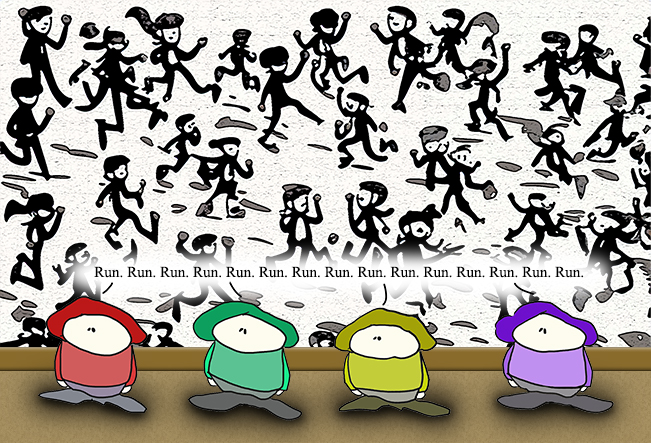That’s a mouthful, I’ll tell you.
Run.
This isn’t about running. Not really. Although, I used to be a runner. I have to tell you. I didn’t like running. Not one bit. But I would get up every morning and crank out the miles. It started out being two miles or so. Then, my numbers inched up to six or seven miles every time out. It seemed like both mental and physical torture. Some people love to run. As you can surmise, I did not.
So, one day, I decided I’d had enough. After years of agony, I simply don’t do it anymore.
But this is about that.
It is about this. Another type of long distance.
Three little letters, 645 meanings.
Perhaps it is as absurd as trudging around the block for seven miles. But.
Oxford English Dictionary editors recently revealed that “run” has indeed become the single word with the most potential meanings in all of English. As such, they let us all know that the word “run” has no fewer than 645 different usage cases for the verb form alone.
The definitions of “run” featured in the OED’s upcoming third edition begin with the obvious, “to go with quick steps on alternate feet.”
But, those definitions then proceed to run on for 75 columns of type. This entire hefty entry took one professional lexicographer nine months of research to complete.
Consider this from a recent press release:
~~~
Context is everything. Think about it: When you run a fever, for example, those three letters have a very different meaning than when you run a bath to treat it or when your bathwater subsequently runs over and drenches your cotton bath runner, forcing you to run out to the store and buy a new one. There, you run up a bill of $85 because besides a rug and some cold medicine, you also need some thread to fix the run in your stockings and some tissue for your runny nose and a carton of milk because you’ve run through your supply at home, and all this makes dread run through your soul because your value-club membership runs out at the end of the month and you’ve already run over your budget on last week’s grocery run when you ran over a nail in the parking lot and now your car won’t even run properly because whatever idiot runs that Walmart apparently lets his custodial staff run amok and you know you’re letting your inner monologue run on and on but, gosh—you’d do things differently if you ran the world. (And breathe). Maybe you should run for office. While you’re at it, try using some of these words to sound smarter.
~~~~
Run wasn’t always at the top of the heap when it came to the most definitions in the dictionary. When the OED’s first edition came out in 1928 (after 70 years of editorial research), the longest entry belonged to another three-letter word: “set.”
Still, though, the dictionary contains some 200 meanings for “set.”
So what happened to make the word “run” suddenly go ahead in the definition count? Well, apparently, times have changed. As British author Simon Winchester explains thing, “run” has become “a feature of our more energetic and frantic times.”
First, “run” got some big lift during the boom of the Industrial Revolution. Everything that was mechanized “ran” somehow. Machines run, clocks run, computers run. All of this started happening in the mid-19th century.
So, there it is. Run, run, run. But you will have to wait to see it. The next print edition of the Oxford English Dictionary isn’t expected to be published until 2037.
“””””””
Language exerts hidden power, like the moon on the tides.
— Rita Mae Brown
“””””””
Our language is the reflection of ourselves. A language is an exact reflection of the character and growth of its speakers.
— Cesar Chavez
“””””””
Use what language you will, you can never say anything but what you are.
— Ralph Waldo Emerson
“””””””
